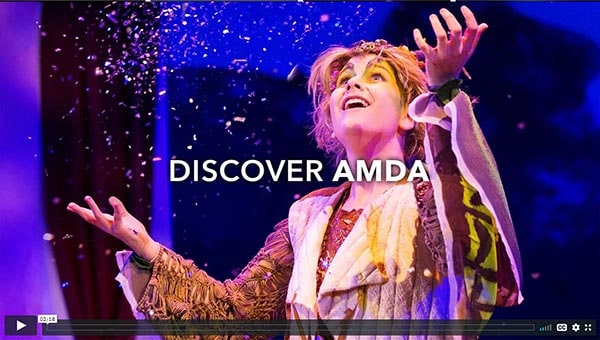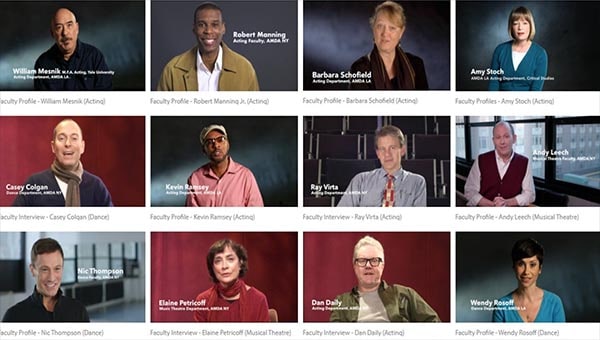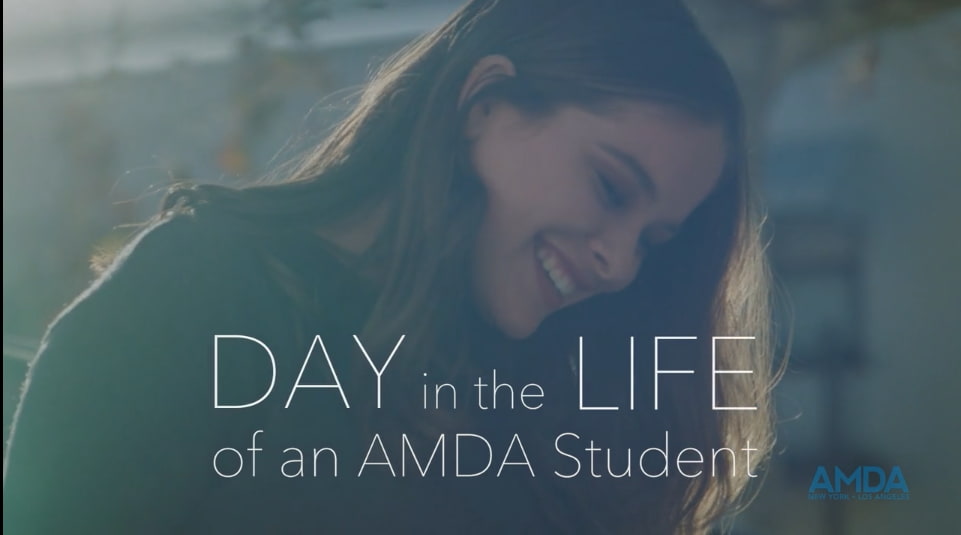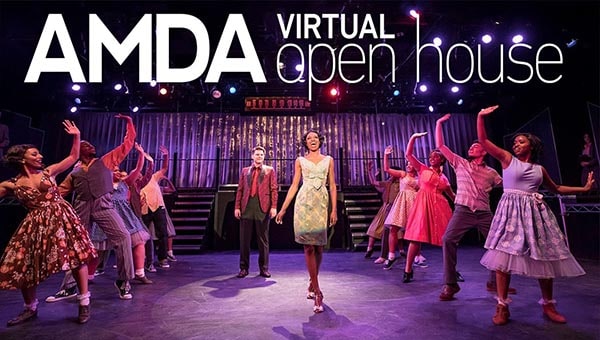THE POWER OF REPRESENTATION
May 04, 2023 - Alumni, Magazine
SUCCESS FOR ZURI FOREMAN ISN'T JUST PERSONAL ACHIEVEMENT, IT'S ABOUT LIFTING UP ENTIRE COMMUNITIES.
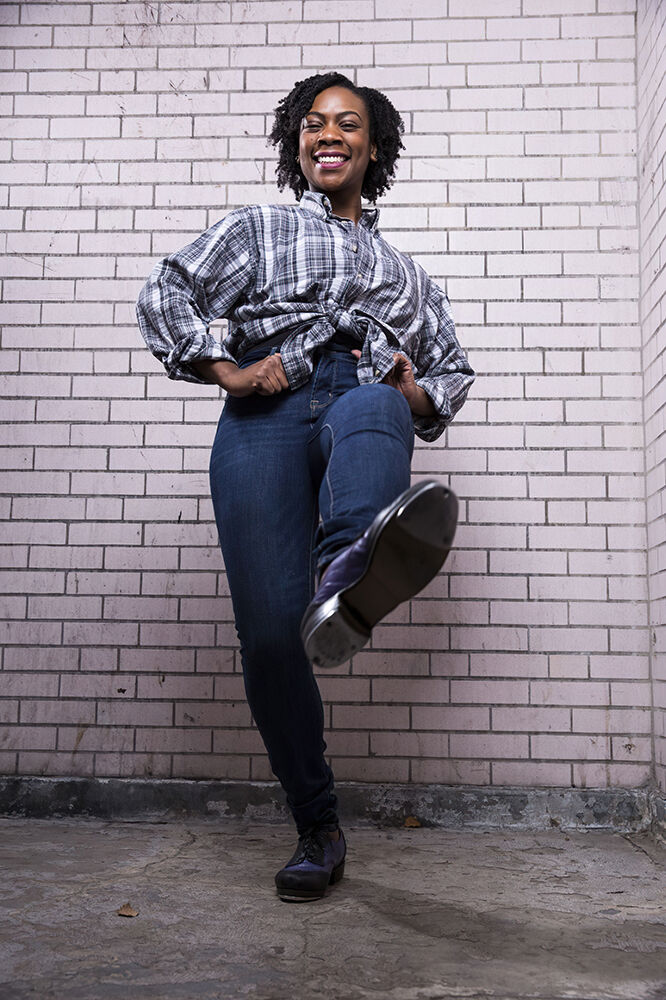
Since graduating from AMDA, Zuri Foreman has made it her life’s work to “colorize the arts,” holding open the proverbial door for other aspiring artists who have been historically underrepresented in the performing arts. In founding the Foreman Arts School in Prince George’s County, Maryland, Zuri hopes to create significantly more opportunities for people of color throughout the industry. Not one to mince words about the nature of her work, Zuri says, “I don’t mean providing opportunities for one or two people. I mean literally coloring the stage.”
While Zuri’s aptitude for dance and performance has helped her ascend within the entertainment industry — she appeared as a featured dancer in the film Passing — she felt compelled to leverage her own success to help others overcome their circumstances to fulfill a similar dream. Reflecting on her mission to bolster diversity in the arts and support disadvantaged youth through her school, Zuri says, “God didn’t give me this gift to dance alone in my kitchen. He wants me to perform and teach the next generation of leaders.” She adds, “You haven’t experienced all of life until you’ve given back.”
Speaking from her own experience, Zuri describes what she feels is a general lack of diversity onstage. “There were multiple shows where I was the only person of color. In this day and age, that was very strange to me. Diversity is something you should see across the stage, even what’s behind it.” In contemplating why so few artists of color are represented in the industry, Zuri notes, “I found the answer was they don’t have the means, they’re not offered the same opportunities.” Now she’s setting out to change that.
From Zuri’s perspective, inspiring the next generation of performers starts with representation. For any person who imagines one day performing under the bright lights of Broadway or gracing the silver screen, seeing someone who looks like them live that reality has a positive effect on shaping their perception of what’s possible, no matter their circumstances. In the absence of representation, some dreams never receive the sunlight they need to ripen on the vine. Those who lack the financial means to engage with creative outlets are especially susceptible. “If children don’t see themselves represented somewhere, they don’t envision they can do it,” she says. In “colorizing the stage,” Zuri is seeking to radically change that perception for the better.
How It All Started
Zuri’s affinity for dance began rather innocuously, not unlike the way in which some superheroes first discover their fantastical abilities. When she was three-years-old, Zuri saw an advertisement in the newspaper for a dance studio showing little girls adorned in elaborate costumes and makeup. “It was really the sparkly costumes they were wearing which caught my eye,” Zuri recalls, with a smile in her voice. She pointed the ad out to her mom, proclaiming, “Mommy, I want to do that! Sign me up for that!” Before long, she was enrolled in preschool ballet classes. What began as a hobby soon materialized into an unbridled passion for the arts. With more experience, Zuri later discovered she had an innate affinity for Tap dance, a form she still considers her strong suit. In high school she was exposed to Hip-Hop and other forms of dance. She was officially hooked.
There were tough lessons to be learned, too. The arduous and competitive aspects of dance tested her mental fortitude. Before ever attending AMDA, Zuri recalls a heart-wrenching instance where an instructor advised her against pursuing dance professionally and told the entire class Zuri couldn’t be featured at the front of a performance piece because she was going to embarrass herself. “Telling a child that can mess them up,” Zuri says. “It sends a negative message that can stick with you.” Though these experiences were challenging, they were instrumental in shaping Zuri’s resolve to help others succeed.
On Finding Her Calling
Despite devoting most of her young life to dance and building herself into a skilled performer, when she reached adulthood she began to take a more pragmatic view of her career. Describing this period of her life, Zuri says, “I barely looked at colleges for dance. Maybe this was not my path.” She eventually attended St. John’s University and studied public relations, a field that played to her natural interest in connecting with people and helping them shape their image. Although Zuri was gravitating toward a new profession, old habits proved too hard to break, and she soon joined the ranks of her college dance team, a move partly responsible for reigniting her passion for performing.
Shortly after graduating from St. John’s, 22-year-old Zuri found herself unemployed following an unremarkable stint working a nine-to-five job. “I had a bit of a quarter-life crisis,” laughs Zuri. “I must have applied to 300 jobs and nobody was choosing me!” Nevertheless, she kept busy doing what she loved most — dancing and using her growing knowledge to train young students.
Sensing she was long overdue for a break from the job hunt, Zuri’s mom invited her to see a Broadway performance of Motown: The Musical. According to Zuri, the experience was transformative. “I just remember thinking, that’s supposed to be me up there. I’m supposed to be on Broadway!” Immediately following the show that night, she began looking up dance schools and discovered AMDA. “I never looked back,” concludes Zuri.
A Dream Come True
Zuri still remembers the excitement she felt upon receiving the initial acceptance letter from AMDA. “It was like a dream come true,” she recounts. For Zuri, it felt like everything had been leading up to this moment. Years of studying dance, witnessing the lack of diversity firsthand, navigating a brief identity crisis and attending a fateful Broadway performance with her mom — all those experiences contributed to a new sense of clarity and an overarching purpose: to diversify the arts.
Before she even began her professional training at AMDA’s New York campus, Zuri knew she wanted to own a performing arts school where she could create more opportunities for people like her. Zuri credits her AMDA education for imparting the work ethic required to operate her school and pursue artistic opportunities. “It’s definitely a juggling act,” notes Zuri, “but AMDA prepared me for this. Being in class from 8:30 a.m. till 5 p.m., then studying, working on outside projects. This is the artist’s life.”
After graduating from AMDA, Zuri returned home to Maryland with her sights set on laying the groundwork for the Foreman Arts School. What had originally been conceived as a six-week summer camp soon blossomed into something beyond Zuri’s modest expectations: 42 kids enrolled, 12 of whom received scholarships. With limited funding available in those early days, several scholarships were funded by Zuri donating her own time and resources, ensuring every student received access to dance classes and dance wear. Many of Zuri’s initial students came from disadvantaged backgrounds and had never previously been exposed to the arts. Like Zuri, they were just kids who happened to feel a creative spark and decided to dive in headfirst.
Demand for the Foreman Arts School only grew from there, designating Prince George’s County as the studio’s official hub. “I felt like God was telling me to keep it going here,” Zuri says about her decision to base the school in her home state. For Zuri, it was an opportunity to share the professional skills she honed at AMDA with students who may lack the means to receive the same quality of education. As Zuri is quick to note, “colorizing the arts” means making personal sacrifices to ensure students receive the same opportunities as anyone else.
Looking ahead, Zuri has plans to expand the program offerings available through her school, covering the full spectrum of the arts, including voice, acting, music and drawing. “It started with dance but eventually I want a building full of artists!” Zuri laughs. “Multiple dance studios, acting and music rooms. Having a theatre connected to us would be nice.” Zuri also has dreams of expanding to multiple locations and becoming a nonprofit organization, ensuring additional funding reaches those who need it most.
The Benefits of Dance
Exposing disadvantaged youth to the arts has the power to transform lives for the better — however, many enduring issues of racial inequality often stand in the way. “A lot of children of color don’t have the means to be in an arts program. That causes so many other issues,” Zuri laments. “The arts is a place that can help these kids stay on track and maintain good grades in school.” Although the kids Zuri works with are generally too young to express how much these opportunities mean to them, the chorus of hugely appreciative parents grows louder with every scholarship awarded.

“Putting yourself on stage is a form of vulnerability. When you’re out there in front of an audience, it gives you
self-confidence.”
A true advocate for the arts, Zuri suggests the benefits of dance are especially effective at molding more confident kids. “Putting yourself on stage is a form of vulnerability. When you’re out there in front of an audience, it gives you self-confidence. You also learn to be disciplined by showing up on time, dressed and ready to perform.” The value of teamwork is another major emphasis at the Foreman Arts School. “Before a performance, we say affirmations — I am beautiful, I am confident, I am brave, I am strong, I am smart. We all come together and say it. It makes a difference, to say that from a young age,” notes Zuri. “If someone falls, you help them up.”
Finding Your ‘Why’
Zuri’s version of success is defined in terms completely outside of herself. “It’s important to have a ‘why,’ the thing that gets you out of bed every morning,” says Zuri. “My why with the Foreman Arts School is making sure the next generation has an opportunity.” She adds, “It’s important for this generation to change the face of Broadway, change the face of television,” she says. “That means putting more people of color on screen and on stage. I’m looking forward to the day that I see one of my students on Broadway, appear in a movie — something that demonstrates they were able to follow their dream.”







